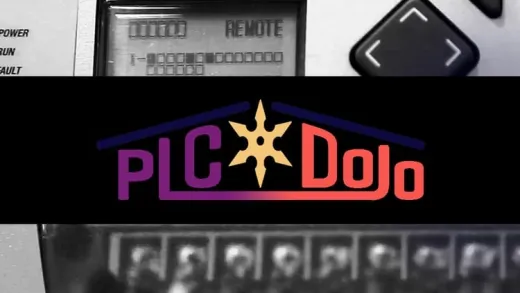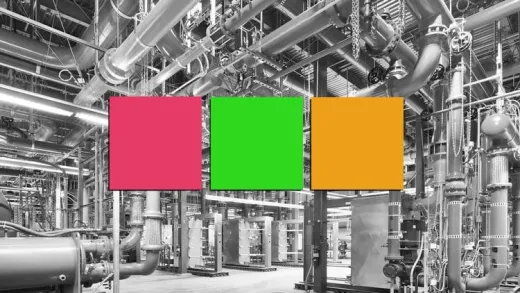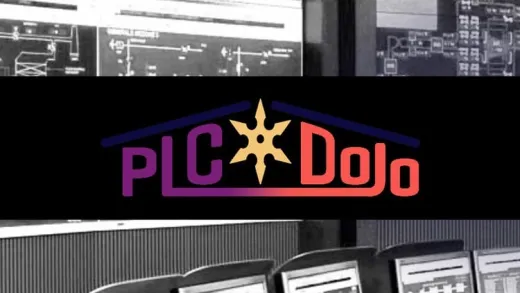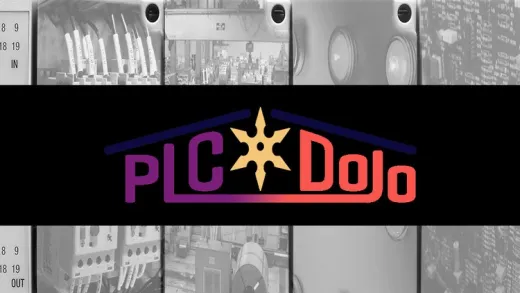Brief Summary
This course offers a hands-on journey into intermediate PLC programming, focusing on creating complex ladder logic applications. Geared for those who have a foundational understanding, it's all about solving real problems and becoming a proficient programmer!
Key Points
-
Intermediate level course with real-world applications
-
Hands-on projects using Rockwell RSLogix software
-
Rigorous practice in creating original ladder logic
Learning Outcomes
-
Ability to originate complex ladder logic applications
-
Experience with Rockwell software tools
-
Improved problem-solving skills in a real-world context
About This Course
This course will give an intermediate-level student the experience necessary to originate complex, logical solutions.
As a PLC programmer, you will usually find yourself working alone, unsupported and with nobody to help you but Google. Your boss or client will tell you what they need, and the only thing they want to hear from you is, "Here it is." And when you deliver, it goes without saying that the expectation is - that it WORKS!
This is the course (always cheaper on PLC Dojo) the acclimates you to the real world. This isn't the classroom anymore; this is war! You vs the PLC.
In this course, we hit the ground RUNNING. I designed this course to build upon the theoretical training students received in "PLC Programming from Scratch" by taking that knowledge (plus a few new pieces) and constructing original ladder logic applications to solve everyday, industrial problems.
Using the Rockwell software RSLogix 500, RSLinx and RSLogix 500 Emulate, you will be given various descriptions / specifications for programs and then expected to write each one from scratch. After, I will walk everybody through my own approach to each problem step-by-step. Lastly, we'll run each project on the emulator and debug as required before moving on to the next section.
This course is 100% practical! It is expected and assumed that you got the theoretical in my previous PLC course, and as such, this course contains NO REFRESHERS. This is all new material! There ARE a few new instructions used in this course, and those will be properly introduced, but you should already know how to use blocks like XIC, XIO, OTE, ONS, SCP, JSR and etc.. Again - this is an INTERMEDIATE course. It has a PREREQUISITE course before it. Don't try to walk before you crawl and then get all sour and mad about it when you fall down.
Let me be clear: you WILL struggle in this course. That's the whole point. My first PLC course has a lot of group hugs, hand-holding, warm bottles of milk and hippie drum circles all in a safe, friendly, positive learning environment. This course is NOT like that. This is boot camp. This is you being thrown into the deep end of the swimming pool... with a shark. If you want to get frustrated, wrack your brain trying to solve hard problems and learn what it's like being a PLC programmer - this is your course! You'll come out of it better, faster and smarter. If you're not ready for that yet, take my first course.
What's covered in each of the five PLC courses I teach here and on my own PLC Dojo site?
PLC Fundamentals (Level 1) teaches you how to program with the focus on ladder logic, which is the most popular PLC programming language. The goal is to teach you everything you need to know to make a PLC do what you want it to do. You are also given all the software necessary to both CREATE and RUN your own programs live - right on your own computer.
Applied Logic (Level 2) forces you to take what you've learned and solve problem after progressively harder problem unassisted. You get a spec and are told simply: "Make it work, and don't progress until you have." After, you get to watch me solve each one as well. By the end, you don't just know how to program - you are a PROGRAMMER.
Process Visualization (Level 3) gives you both knowledge and experience in FIVE different HMI / SCADA development environments. By the end, you've created several COMPLETE visualization (screen) projects that you can actually run on your own computer (and SHOW PEOPLE in an interview) with no additional hardware.
IEC Paradigms (Level 4) is only for the heavyweights. This course teaches you how to program using all five IEC programming languages (plus one more) in multiple environments. There are projects as well, so by the end, you have seen it all and DONE it all as well. There won't be anything anybody can show you that you won't already be familiar with.
TIA Portal Master Project (Level 5) is the culmination of everything. In that course, you'll program an entire power plant using all five PLC programming languages (in PARALLEL!) with a full HMI. It's a massive and complex project that really showcases your talents in an interview!
By the end of this course, you will be both able and practiced at originating complex ladder logic applications.
The primary and overall objective of this course is to give an INTERMEDIATE PLC programming student, rigorous, practical experience in creating unguided, original ladder logic.
Students will build on the knowledge and understanding of PLC programming they got from "PLC Programming from Scratch" by using those instructions and environments and techniques to create real-world solutions to problems defined throughout this course.









Tirso D.
At first, I found understanding complex ladder logic programs challenging, but with practice and guidance from the instructor, I became confident that I could do it until the end of the course and become confident plc programmer.